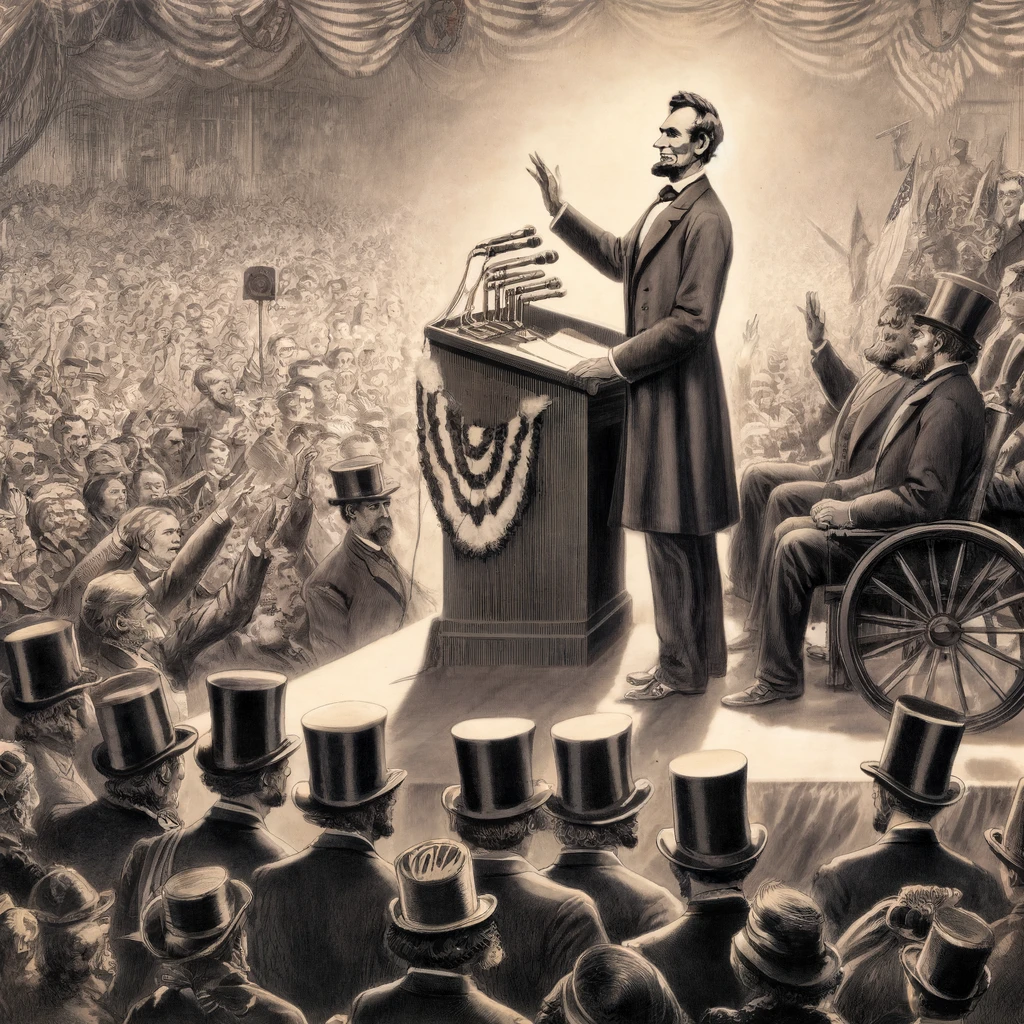On November 6, 1860, Abraham Lincoln was elected as the 16th President of the United States, marking a pivotal moment in American history. His election came amid a deeply divided nation, fraught with tensions over slavery and states’ rights. Lincoln’s victory was not just a personal achievement; it signified a shift toward a more unified vision for the country, though it also foreshadowed the turbulent years ahead, culminating in the Civil War.

The Context of the Election
The election of 1860 was characterized by a fractured political landscape. The Democratic Party had split into Northern and Southern factions, each nominating its candidate—Stephen A. Douglas for the North and John C. Breckinridge for the South. Additionally, the newly formed Republican Party, which opposed the expansion of slavery into the territories, nominated Lincoln. His platform appealed to a coalition of anti-slavery Republicans, former Whigs, and abolitionists.
As the election approached, the country was on the brink of a crisis. The southern states viewed Lincoln’s stance against slavery as a direct threat to their way of life. Despite these tensions, Lincoln campaigned on a message of unity and preservation of the Union, emphasizing his desire to prevent the further spread of slavery rather than abolish it outright.

A Historic Victory
Lincoln’s election was met with both celebration and outrage. He won the presidency with a plurality of the popular vote, securing 180 electoral votes compared to his opponents. His victory underscored the effectiveness of the Republican strategy and the growing anti-slavery sentiment in the North. However, the immediate reaction in the South was one of fear and anger, leading to the secession of several southern states shortly after his election.
The election of Lincoln was a watershed moment that altered the course of American history. His commitment to preserving the Union would be put to the ultimate test in the Civil War, which began less than a year after his inauguration in March 1861. Lincoln’s leadership during this tumultuous period would define his presidency and solidify his legacy as one of the nation’s greatest leaders.
Lasting Impact
Lincoln’s election fundamentally transformed the political landscape of the United States. It brought to the forefront issues of civil rights and governance that continue to resonate in contemporary society. His presidency laid the groundwork for the Emancipation Proclamation and the eventual passage of the Thirteenth Amendment, which abolished slavery.

As we reflect on the significance of Lincoln’s election on November 6, 1860, we acknowledge its profound implications for the future of the United States. Lincoln’s vision of a unified nation and his dedication to the principles of liberty and equality remain relevant today, serving as a reminder of the ongoing struggle for civil rights and justice.
